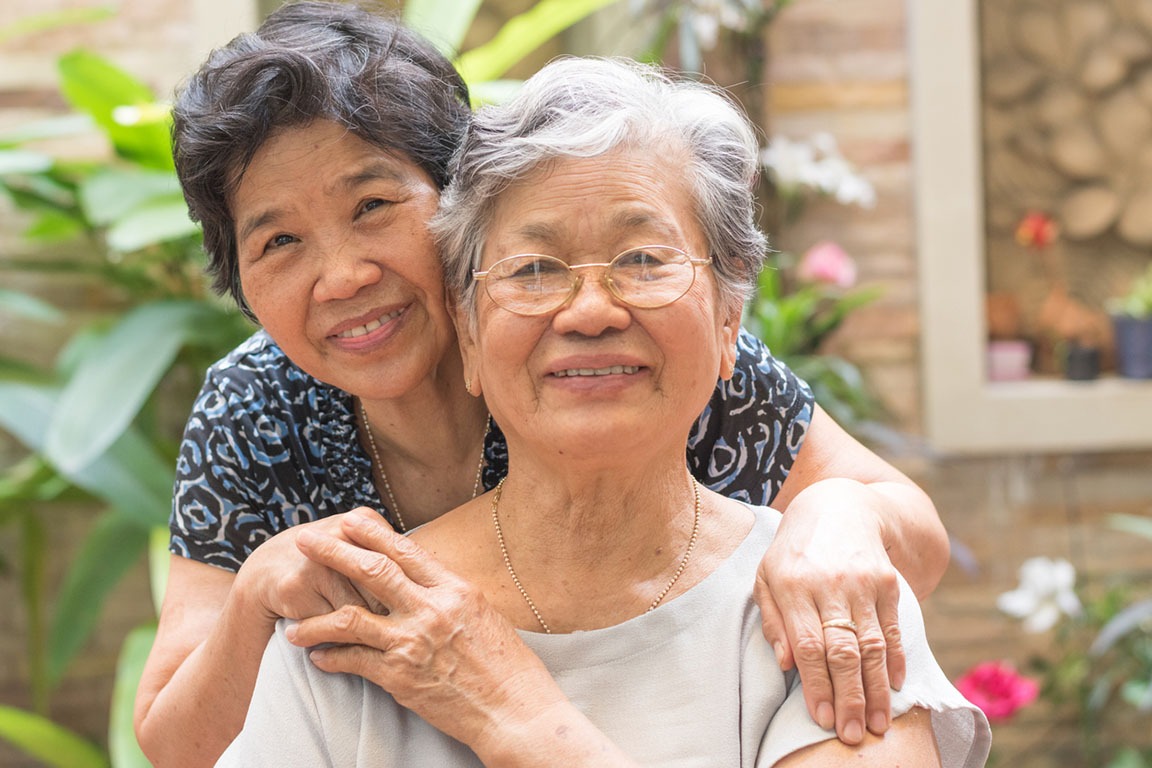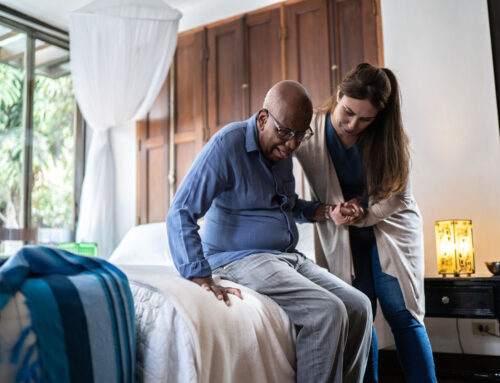Caring for a loved one with Alzheimer’s can be challenging. Each year healthcare organizations around the world designate September 21 as World Alzheimer’s Day, a day dedicated to raising awareness about Alzheimer’s and dementia. Alzheimer’s Disease is the most common form of dementia. Every 65 seconds, someone develops Alzheimer’s Disease. Alzheimer’s Disease is the sixth-leading cause of death in the United States and the only cause of death among the top 10 in the United States that cannot be prevented, cured or even slowed. Many experts predict that by 2050 as many as 16 million Americans will be living with Alzheimer’s.
Alzheimer’s is often referred to as a “family disease” because of the stress, burden and mental health toll this disease has on the entire family. As they say, “no one lives Alzheimer’s alone.” Caring for a loved one with Alzheimer’s can be hard to manage alone. Caregivers often feel helpless as they watch the loved one they knew slowly slip away. And as the disease progresses, many experience challenging symptoms, including discomfort, pain, hyperactivity and confusion. But perhaps the most difficult symptoms are the personality changes that accompany Alzheimer’s Disease. Caregivers often report bursts of anger, agitation, moodiness, aggression, and physical and verbal outbursts. Caregivers also report feeling depressed, overwhelmed and burnt out caring for a loved one they don’t even recognize anymore.
Though hospice care can greatly ease the stress and burdens of Alzheimer’s, it remains underutilized. Many families living with Alzheimer’s simply don’t realize the very real benefits and comfort of hospice care. Some physicians may be reluctant to approach the hospice conversation or may not realize the toll the disease is having on the patient and caregiver. As a result, many families go without the extra layer of support from hospice, which can provide pain and symptom control, reduced hospitalizations, disease education and caregiver empowerment.
8 Ways Hospice Can Help Families Living With Alzheimer’s
Hospice can greatly improve the quality of life for a loved one with Alzheimer’s and bring support, guidance and empowerment to the family and patient’s caregivers. The Roze Room team is highly trained in providing expert care for Alzheimer’s patients and their families. Here are 8 ways Roze Room can help:
• Help families cope with confusion, irritability and personality changes
• Assess and treat Alzheimer’s-related symptoms, including anxiety, trouble sleeping, sundowning and depression
• Help families establish daily routines, recognize what triggers troubling behavior and recognize signs of distress
• Ensure your loved one is comfortable and free of pain even when they are no longer able to communicate their needs
• Provide the care, comfort and support that improves quality of life for your loved one and your family
• Help you understand the disease and prepare for the difficult days ahead
• Provide practical support and help with personal care needs like bathing, helping with hygienic routines and changing bedding
• Provide spiritual care and grief support
Roze Room is focused on improving quality of life for both patients and their families living with Alzheimer’s or other dementias.
When Is It Time to Consider Hospice Care for Alzheimer’s Disease?
If your loved one is experiencing these characteristics, it may be time to consider hospice care:
• Difficulty walking without your help
• Needing help bathing or dressing
• Having trouble sitting up
• Progressively becoming less verbal
• Experiencing continuing weight loss
• Showing signs of severe agitation
• Needing a pureed diet
Getting the Support You Need
Are you caring for a loved one with Alzheimer’s? Do you feel it’s time to ask for the support and care you both need? Roze Room is here to help. Our skilled Alzheimer’s professionals can help determine the level of care and support that will bring the most benefit to you and your loved one. You don’t have to face this alone. Learn more here on how we can help.





